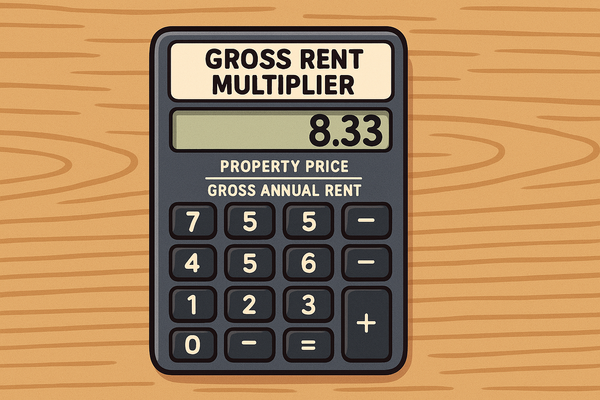Indiana Squatter's Rights Guide: SB 70, Adverse Possession Laws, and Property Protection 🏡
With Senate Bill 70 set to take effect on July 1, 2025, Indiana is poised for significant changes in how unauthorized property occupation is handled throughout the state.

For property owners in Indiana, understanding squatter's rights is essential to protect your investment and prevent potential challenges to your ownership. With Senate Bill 70 set to take effect on July 1, 2025, Indiana is poised for significant changes in how unauthorized property occupation is handled throughout the state.
Key Takeaways
- Indiana requires squatters to occupy property continuously for 10 years before they can file an adverse possession claim
- The new SB 70 (effective July 1, 2025) will create an expedited process for removing squatters from residential properties
- Squatters must pay property taxes and typically need "color of title" to make a valid adverse possession claim
- Indiana's timeframe can be reduced to 5 years if the squatter has paid taxes or possesses color of title
- Special protections exist for vulnerable property owners who are legally disabled
- Regular property inspections and security measures remain the best prevention against squatters
But First... A Squatter Snippet:
The Indianapolis Duplex Squatter: Nestled in the headlines of 2023's most audacious real estate schemes sits a tale so brazen it leaves you wondering whether to gasp or slow-clap. The Indianapolis duplex squatter didn't just cross boundaries—she redefined them with spectacular flair! Our enterprising protagonist began with a legitimate Facebook Marketplace rental of half a duplex before breaking into the for-sale unit next door and—wait for it—starting her own unauthorized rental business! This impromptu hospitality venture quickly transformed into the neighborhood's most unwanted attraction, with police making a staggering 29 visits in just one year.
Understanding Indiana Squatter Rights in 2025
While squatting itself is not legal in Indiana, the doctrine of adverse possession has historically provided a pathway for individuals who occupy abandoned or neglected property to potentially gain legal ownership after meeting specific conditions over a designated period.
Unlike many states where adverse possession requirements are solely defined by statute, Indiana's framework has been substantially shaped through landmark court cases such as Fraley v. Minger and Celebration Worship Center, Inc. v. Patrick Tucker and Carolyn P. Tucker. These cases established the four essential requirements known as "control," "intent," "notice," and "duration" that form the foundation of Indiana's adverse possession doctrine.
Indiana's COIN Framework for Adverse Possession
For a squatter to claim legal ownership through adverse possession in Indiana, they must satisfy several stringent requirements known as the "COIN" framework (a version of the OCEAN framework that is associated with most states adverse possession laws):
Control
The squatter must have actual physical control of the property, treating it as their own by maintaining and improving it.
Open and Notorious
The occupation must be visible and obvious to anyone, including the rightful owner. The squatter must live openly as if they were the rightful owner.
Intent
The squatter must demonstrate clear intent to claim the property as their own, not merely permission to use it temporarily.
Notice
The true owner must have actual or constructive notice of the squatter's hostile claim to ownership.
Beyond these four fundamental requirements, Indiana law imposes additional conditions:
- The squatter must pay all property taxes for the property during the occupation period
- The standard timeframe is 10 years of continuous occupation
- This can be reduced to 5 years if the squatter has paid property taxes or possesses "color of title"
- If the legal owner is legally disabled (minor or mentally incapacitated), the adverse possession period does not begin until after the disability ends
Indiana's SB 70: The Game-Changing Squatter Law
Set to take effect on July 1, 2025, Senate Bill 70 represents a significant shift in how Indiana will address unauthorized property occupation. This legislation adds an entirely new chapter to the Indiana Code dedicated exclusively to the "Expedited Removal of Squatters From Residential Real Property."
Key Provisions of SB 70:
- Creates a specialized legal pathway specifically designed for squatter removal
- Establishes an expedited process for property owners to reclaim their properties
- Enhances protections for legitimate property owners against unauthorized occupants
- Maintains protections for legitimate tenants with legal disputes
- Reflects a national trend toward strengthening property owners' rights against squatters
This legislation represents the culmination of growing concerns about squatting incidents throughout Indiana, including high-profile cases that have made national headlines. While maintaining the legal concept of adverse possession, the law creates clear pathways for property owners to remove unauthorized occupants more efficiently.
Shocking Case Studies: Indiana Squatter Situations
The need for strengthened property owner protections is illustrated by several audacious squatting cases that have occurred in Indiana.
The Indianapolis Duplex Entrepreneur
In late 2023, an Indianapolis woman engineered a brazen scheme that began with legitimately renting one half of a duplex advertised on Facebook Marketplace. She then allegedly broke into the other half of the duplex—a unit listed for sale—and began living there without permission.
What truly distinguished this case was that she allegedly began renting rooms within the illegally occupied unit to others, effectively turning her unauthorized occupation into a profit-generating enterprise. The Indianapolis Metropolitan Police Department reported being called to the property approximately 29 times over the course of a year for incidents including domestic disturbances, drug investigations, overdoses, and even a shooting.
The Southern Indiana "Law Student" Case
In Charlestown, authorities encountered a woman who had developed a systematic approach to identifying and occupying vacant properties. When deputies responded to reports of unauthorized occupation, they found Erika Kovalevska and Samantha Perez.
Kovalevska candidly admitted to authorities, "I literally was canvassing an area looking for a vacant residence," describing a deliberate strategy rather than an opportunistic occupation. She claimed to understand "squatter's rights" and told authorities she was "preparing herself for law school"—a claim deputies found no evidence to support.
How Indiana's Approach Differs From Other States
Indiana's approach to squatter rights has evolved to create a balance between the historical purpose of adverse possession and modern property rights protections.
Adverse Possession Timeframes
| State | Required Occupation Period | Tax Payment Required |
|---|---|---|
| Indiana | 10 years (5 with color of title) | Yes |
| Florida | 7 years | Yes |
| California | 5 years | Yes |
| New York | 10 years | No |
| Texas | 10 years (3 with deed) | Yes |
Distinctive Indiana Features
Indiana's approach contains several unique elements:
- Case Law Foundation: Unlike many states where requirements are solely statutory, Indiana's framework has been substantially shaped through specific court cases.
- Conditional Timeframe Reduction: The standard timeframe of 10 years can be reduced to 5 years if certain conditions are met.
- Protection for Vulnerable Owners: Special provisions protect legally disabled property owners from adverse possession claims.
- Mandatory Tax Payment: The requirement to pay all property taxes creates a substantial financial barrier for potential adverse possession claims.
How to Prevent Squatters in Indiana Properties
Prevention remains the most effective strategy for property owners:
Regular Property Inspections
- Visit vacant properties regularly or hire a property management company
- Document the condition of the property with dated photographs
- Maintain landscaping and exterior appearance to show active ownership
Security Systems and Monitoring
- Install visible security cameras and alarm systems
- Consider smart home security that provides remote monitoring
- Use motion-activated lighting around the property perimeter
- Install sturdy locks, security doors, and window reinforcements
Property Maintenance
- Keep utilities active but on minimum service levels for vacant properties
- Maintain landscaping and exterior appearance
- Collect mail regularly or have it forwarded
- Schedule timed interior lighting to create the appearance of occupation
Documentation and Signage
- Post "No Trespassing" signs prominently on the property
- Maintain comprehensive documentation of ownership
- File a "Declaration of Use" with your county property appraiser
- Maintain records of all property taxes paid and improvements made
Legal Process for Removing Squatters in Indiana
Currently, property owners must pursue traditional eviction procedures to remove squatters. However, with the implementation of SB 70 in July 2025, a more streamlined process will become available.
After SB 70 Implementation (July 1, 2025):
- File a verified complaint with appropriate documentation
- Utilize the expedited removal process specifically designed for squatter situations
- Potentially receive faster law enforcement assistance in qualifying cases
- Follow specific procedures outlined in the new legislation
Traditional Process (Current):
- Follow standard eviction procedures
- File an unlawful detainer lawsuit
- Attend court proceedings
- Obtain necessary legal orders
- Arrange for sheriff execution of removal orders
Tenant vs. Squatter: Legal Distinctions
Understanding the legal difference between a tenant and a squatter is crucial, as the removal processes differ significantly:
Tenants:
- Have lawful permission to occupy the property through a formal or informal agreement
- Pay rent (though may be behind on payments)
- Have established rights under Indiana landlord-tenant laws
- Must be removed through formal eviction proceedings
- Include former tenants whose leases have expired but continue to occupy the property
Squatters:
- Never had lawful permission to occupy the property
- Entered the property without authorization
- Pay no rent and have no rental agreement
- Will potentially be eligible for expedited removal under SB 70
- Have no legitimate claim to tenancy rights
Frequently Asked Questions
General Squatter Rights Questions
Q: What are squatter's rights in Indiana? A: Squatter's rights refer to adverse possession laws that potentially allow someone to claim ownership of property after occupying it openly, continuously, and without permission for 10 years (or 5 years under certain conditions) while meeting specific legal requirements.
Q: Is squatting illegal in Indiana? A: Yes, unauthorized occupation of property is illegal in Indiana. SB 70 will establish clearer pathways for property owners to address squatting situations when it takes effect in July 2025.
Q: How long does someone have to squat on property in Indiana to claim ownership? A: In Indiana, a squatter must continuously occupy a property for 10 years before they can file an adverse possession claim. This can be reduced to 5 years if the squatter has paid property taxes or possesses "color of title."
Q: Do squatters have to pay property taxes in Indiana? A: Yes. To make a valid adverse possession claim in Indiana, squatters must pay all property taxes during their occupation period.
Prevention and Removal
Q: How can I prevent squatters from occupying my property? A: Regular property inspections, security systems, property maintenance, "No Trespassing" signs, and professional property management are effective prevention strategies.
Q: How do I remove squatters from my property in Indiana? A: Currently, property owners must use traditional eviction procedures. After July 1, 2025, property owners will have access to the expedited process established by SB 70.
Q: Can I physically remove squatters myself? A: No. Self-help evictions are illegal in Indiana. Property owners must use legal processes to remove unauthorized occupants.
Q: Can I turn off utilities to force squatters to leave? A: No. Turning off utilities is considered a self-help eviction tactic and is illegal in Indiana. This could potentially expose you to legal liability.
Conclusion
Indiana's approach to squatter's rights represents a fascinating balance between historical legal principles and modern property protections. The upcoming implementation of Senate Bill 70 in July 2025 will mark a significant shift toward stronger property owner protections while maintaining the fundamental legal doctrine of adverse possession under strictly defined circumstances.
The 10-year timeframe for adverse possession claims (with potential reduction to 5 years in specific circumstances) and the mandatory requirement for property tax payment create substantial barriers to successful adverse possession claims. The new expedited removal process will provide property owners with more efficient remedies against unauthorized occupation.
For property owners, protection strategies should focus on:
- Regular monitoring and maintenance of properties
- Prompt action if unauthorized occupants are discovered
- Following legal procedures rather than self-help measures
- Maintaining comprehensive documentation of ownership
- Considering professional property management for vacant properties
By understanding Indiana's squatter rights laws and taking preventive measures, property owners can significantly reduce their risk of unauthorized occupation and potential adverse possession claims.
Resources and References
- Indiana Code § 32-21-7-1: Adverse Possession
- Senate Bill 70 (2025): Expedited Removal of Squatters From Residential Real Property
- Indiana Supreme Court: Fraley v. Minger
Disclaimer
This article provides general information and does not constitute legal advice. The laws regarding squatter's rights and adverse possession are complex and subject to change, especially with upcoming legislative updates. Consult with a qualified attorney for guidance on your specific situation. Property owners facing squatter situations should seek professional legal assistance rather than attempting self-help measures that may create additional liability.





